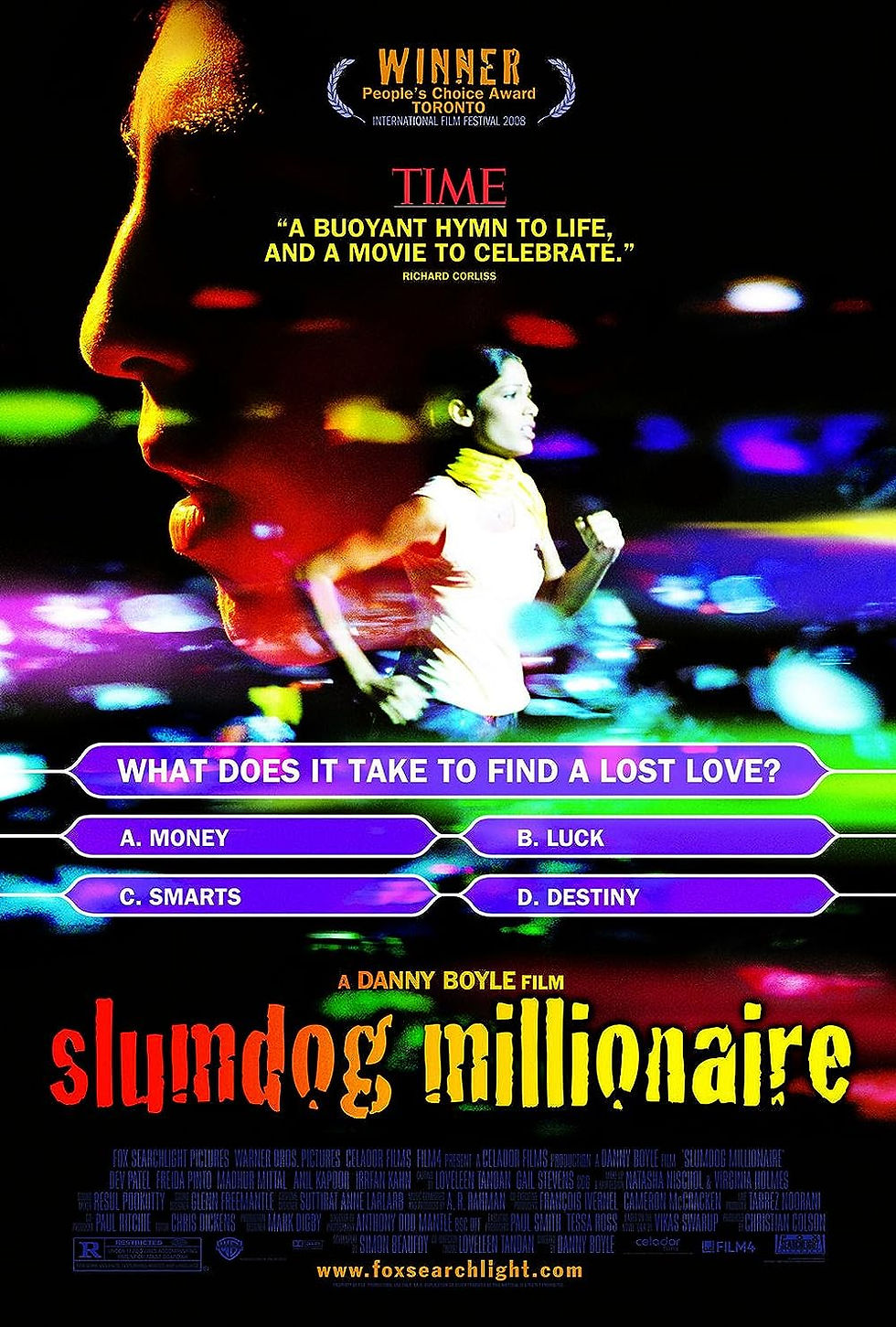"THE RISE OF SOCIALLY CONSCIOUS CINEMA - MOVIES THAT INSPIRE CHANGE": DE MODE GLOBAL
- DE MODE

- Apr 28, 2024
- 3 min read
ORIGINALLY PUBLISHED IN DE MODE | MOVIES
Article Published on: 28TH APR 2024 | www.demodemagazine.com
The rise of socially conscious cinema marks a pivotal shift in the landscape of filmmaking, as filmmakers increasingly use their craft as a platform to address pressing social issues and inspire change. Through thought-provoking narratives, compelling characters, and powerful imagery, socially conscious films engage audiences in conversations about injustice, inequality, and the quest for a better world. In this essay, we explore three movies that exemplify the transformative potential of socially conscious cinema, inviting viewers to confront uncomfortable truths, challenge prevailing norms, and envision a more just and equitable society.
Our first cinematic journey takes us to the vibrant streets of Mumbai in "Slumdog Millionaire," directed by Danny Boyle and adapted from Vikas Swarup's novel "Q & A." Set against the backdrop of poverty, corruption, and exploitation, the film follows the remarkable journey of Jamal Malik, a young orphan who rises from the slums to compete on the Indian version of "Who Wants to Be a Millionaire." As Jamal navigates the challenges of his tumultuous life, he confronts systemic injustices and entrenched social hierarchies that threaten to thwart his dreams.
"Slumdog Millionaire" is a powerful testament to the resilience of the human spirit in the face of adversity, offering a searing critique of socioeconomic inequality and cultural marginalization. Through Boyle's dynamic direction, Anthony Dod Mantle's evocative cinematography, and Simon Beaufoy's poignant screenplay, the film immerses viewers in the vibrant tapestry of life in the Mumbai slums, capturing both the despair and the hope that coexist amidst the chaos. With its electrifying performances and stirring soundtrack, "Slumdog Millionaire" challenges audiences to confront uncomfortable truths about privilege, poverty, and the pursuit of happiness in an unequal world.

Our next cinematic exploration leads us to the heart of racial injustice in America with Ava DuVernay's "Selma." Chronicling the historic 1965 Selma to Montgomery voting rights marches led by Dr. Martin Luther King Jr., the film offers a powerful meditation on the power of nonviolent resistance in the face of systemic oppression. Through DuVernay's incisive direction, Bradford Young's luminous cinematography, and Paul Webb's eloquent screenplay, "Selma" transports viewers to a pivotal moment in American history, where ordinary citizens courageously stood up to demand equality and justice.
"Selma" is more than a historical drama; it is a rallying cry for social change, challenging viewers to confront the enduring legacy of racism and inequality in America. With its unflinching portrayal of police brutality, voter suppression, and institutional racism, the film holds a mirror to society, forcing audiences to reckon with the injustices that continue to plague communities of color. Through powerful performances by David Oyelowo as Dr. King and an ensemble cast of talented actors, "Selma" inspires viewers to reflect on the sacrifices of those who came before us and to rededicate themselves to the ongoing struggle for civil rights and human dignity.

Our final cinematic odyssey brings us to the front lines of environmental activism with "An Inconvenient Truth," directed by Davis Guggenheim and featuring former Vice President Al Gore. Through a combination of compelling storytelling, scientific evidence, and multimedia presentations, the film sounds the alarm on the urgent threat of climate change and its devastating impact on the planet. As Gore travels the globe to raise awareness about the looming crisis, "An Inconvenient Truth" offers a sobering reminder of the consequences of inaction and the imperative of collective action to address this existential threat.
"An Inconvenient Truth" is a groundbreaking example of how cinema can be used as a tool for education, advocacy, and social change. By presenting complex scientific concepts in accessible and engaging ways, the film empowers viewers to become informed citizens and advocates for environmental stewardship. Through Guggenheim's deft direction and Gore's impassioned advocacy, "An Inconvenient Truth" inspires audiences to confront the reality of climate change and to take meaningful steps to mitigate its impact, from reducing carbon emissions to advocating for policy change at the local, national, and global levels.

In conclusion, the rise of socially conscious cinema heralds a new era of filmmaking characterized by a commitment to social justice, activism, and positive change. Through films like "Slumdog Millionaire," "Selma," and "An Inconvenient Truth," filmmakers harness the power of storytelling to shine a light on pressing social issues, amplify marginalized voices, and inspire audiences to envision a more just and equitable world. As we continue to grapple with the challenges of our time, socially conscious cinema reminds us of the transformative potential of art to ignite empathy, provoke reflection, and mobilize action in pursuit of a brighter future for all.



Comments